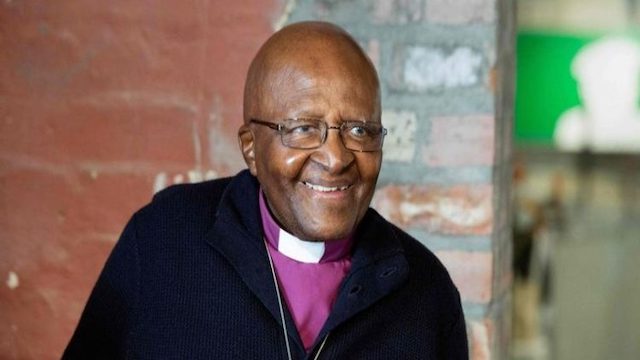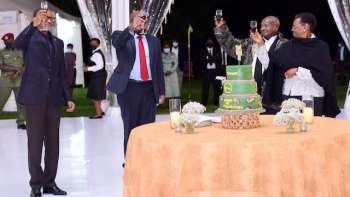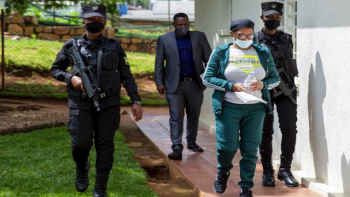Nobel Prize Laureate, Freedom struggle icon and Leader in the South African Council of Churches Archbishop Desmond Mpilo Tutu has died on December 26, 2021. He was 90 years old. Archbishop Desmond Tutu is considered as one of African freedom heroes for the struggle against apartheid , corruption, dictatorship, and kleptocracy.
Desmond Tutu's first public step in the fight against the apartheid system, that he said was as bad as nazism, was when, in 1958, he refused to comply with orders and rules of the bloody and repressive racist apartheid regime in South Africa and resigned his post as a teacher.
In 1988, he told the United Nations that Apartheid was as bad as “nazism”, and wondered whether the politicians around the World, especially those in the West, who failed to support sanctions campaigns against the Apartheid regime in South Africa were not racists.
In 1989, in Cape Town, Tutu led a 30,000 people anti-apartheid march. He retired from the Anglican Church leadership in 1996, with the title of Archbishop Emeritus of Cape Town. A year later, in 1990, Desmond Tutu welcomed Nelson Mandela, released from prison after 27 years, and hosted him for his first night of freedom. Nelson Mandela honored Desmond Tutu, calling him "the people's archbishop."
On August 12, 2009 U.S. President Barack Obama awarded Desmond Tutu the Presidential Medal of Freedom.
Advertisement
on Amazon and bARNES NOble-- click here
For more on Legs of Tornado: The Human Who Outran the Wind, Visit the site Legs of Of Tornado, here
Throughout his life, that cannot be described in just one article, or a book, he consistently fought for the rights of his people and the repressed people around the World, advocating, pushing and struggling for racial justice, equality, tolerance, moral accountability and against repression, corruption, segregation policies, and bad governance in Africa and around the world.
He specifically directed his criticisms against dictators and corrupt leaders in his country, South Africa and in Africa.
In South Africa in particular, Archbishop Desmond Tutu was a prominent vocal critic of the ruling African National Congress party and post aparthedi Black leaders who used their position to enrich themselves through mismanagement and systematic corruption. One of these Black leaders is the former freedom fighter Jacob Zuma, who, once in power, allegedly engaged into systematic corruption, embezzlement and mismanagement and has been facing justice.
Archbishop Desmond Tutu never hesitated to criticize other African dictators and to point out their shortcomings.
In 2020, Archbishop Desmond Tutu summarized the tragedy unfolding in Rwanda, under General Paul Kagame's leadership (See here: why Did Yale University Remove Twitter Banner With Rwandan Dictator Paul Kagame?). ”The whole world wanted to believe in the miracle that was Rwanda – a country built from the wreckage and devastation that intertribal violence and ethnic cleansing had caused. The whole world ignored the few voices pointing out the silencing of political opponents through imprisonment, kidnapping or torture. To our shame, our need for Rwanda to succeed far exceeded our desire or ability to see the cost at which that success was bought.”
Desmond Mpilo Tutu was born on October7, 1931 in Klerksdorp, northwest South Africa. He was trained as a teacher. He later became a and theologian, and then a South African Anglican bishop. He was the Bishop of Johannesburg from 1985 to 1986 and then Archbishop of Cape Town from 1986 to 1996. He was the first black African to hold the positions. He became known worldwide for his work as an anti-apartheid, human rights and racial justice activist.
Following the end of apartheid in 1994, in the new democratic South Africa, Desmond Mpilo Tutu chaired the Truth and Reconciliation Commission that documented atrocities committed by the racist regime under apartheid and sought to promote national and racial reconciliation.
@AfroAmerica Network 2021

















